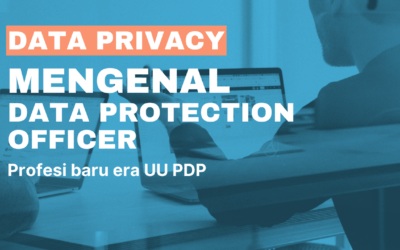In 29 October 2021, Mark Zuckerberg announced Meta as the umbrella corporation of his product such as Facebook, Whatsapp, and Instagram. However, that’s not the only news from that announcement.
Mark Zuckerberg also presented Metaverse, a big vision from Meta which is not surprising since Facebook (or Meta) already bought Oculus Rift a long time ago.
But, what does Metaverse stand for?
The word “metaverse” is often traced to Neal Stephenson’s 1992 dystopic, cyberpunk novel Snow Crash, and many see a more recent inspiration in the dazzling warren of experiences at the heart of Earnest Cline’s 2011 novel Ready Player One.
The concept of a metaverse is not a new thing, it is in the digital world since the internet is used by the human species. The online communities grew since 1980 and the wave started from AOL until multi-player gaming such as warcraft.
The concept of the digital world simply is a new layer of our universe: the digital universe. Everyone can interact in the digital universe and represent themselves (or sometimes anonymous).
Today, the development of internet speed and covid-19 even accelerate the traffic of the digital world.
The multi-player game, such as Fortnite, is the closest concept of Metaverse where we can interact (and kill each other) with the player in a digital world and also buy things to decorate our avatar in the game. However, Fortnite moved to the next level by holding a digital concert in 2020.
Each avatar in the video is a real person involved in Travis Scott’s concert with a dazzling virtual environment, they are dancing together in a virtual world, weird?
Metaverse Technology
The interaction of humans in a digital world such as multiplayer games is not enough to be categorized as the metaverse. Metaverse is still a concept, a big vision from giant tech companies such as Facebook and Microsoft, but the current technology already exists to realize the metaverse.
In a simple way, Metaverse is still a digital universe but with the 3D experience. It means you can experience it with your first perspective with virtual reality tools and not with the joystick or navigational button.
Everyone starts to discuss the metaverse in order to imagine the possibility of this new wave of technology. But just like other technology tools, there is always a two side coin which means we should check what is the opposing side of Metaverse besides its promising tons of benefits.
Let us use the social dilemma’s perspective to check what can be wrong with metaverse. The social dilemma introduced by Netflix documentary and provide testimonials from ex-technologist from famous tech companies such as Google, Twitter, and Facebook.
The Mental Health Dilemma
“A 5,000 person study found that higher social media use correlated with self-reported declines in mental and physical health and life satisfaction” – American Journal of Epidemiology, 2017 –
There is clear evidence about the use of social media and mental health. According to a 2019 study, teenagers who spend more than 3 hours per day on social media are more likely to suffer from mental health issues such as depression, anxiety, aggression, and antisocial behaviour (www.medicalnewstoday.com). Without Metaverse, the problem of social media is threatening our mental health.
The concept of Metaverse is to let everyone experience the 3D world with their avatar and this technology, of course, is more addictive than social media. The condition led to the overuse of the Metaverse connection which means you can prefer more to live in Metaverse than in the real world. Overuse of digital technology is linked to a variety of mental health issues, including somatic symptoms (6%), depression (4%), psychoticism (0.5%), paranoid ideation (0.5%), and serious mental illness (2%) (www.psychologytoday.com).
The Democracy Dilemma
The big company profiling their user is a common thing in business. It helps them to customize the offer and your experiences; therefore you can stay longer with their product. It is a normal thing until your data is handover to a third party and used for the election. Anyway, that is not fiction but already happened when Cambridge Analytica use the Facebook user data for the 2014 US Election.
Can you imagine how many data point the Metaverse technology gained from you? it is not only your personal profile but also your preference, your move, almost all of your activity in the Metaverse. The big tech company has a very strong influence in a country because they have all of your data and that is their bargain to a government and could lead to techno-feudalism.
The Discrimination Dilemma
COVID-19 pandemic was not only proved that our health system is weak, but the internet plays a vital role to distribute the disinformation. 64% per cent of those who joined extremist groups on Facebook were guided there by Facebook’s algorithms (Internal Facebook Report, 2018).
The algorithm customized what kind of information that you consumed in the social media, but the algorithm also creates an echo chamber which means you only consume the information that suits your opinion.
If you find your friends have really extreme opinions about COVID-19, as for example the virus created by Bill Gates and spread via 5G, then you need to check his/her social media deck.
Again, the Metaverse enhances the echo chamber where you create your own world with all of the information that you like to see.
There are a number of reasons why Meta’s construction of the metaverse might actually make this broken reality worse than it is right now: First and foremost, this is a tool that could potentially allow individuals to filter out viewpoints that they disagree with. In addition, the metaverse might allow individuals to see tailored and individualized advertisements, which would further segregate them from the rest of the world (digitalinformationworld.com)
Conclusion
Recently, so many famous people talk about Metaverse in Indonesia. But, all of them are businessmen that mostly talk about Metaverse could open a lot of opportunities for the economy.
Yes, we are really optimistic about this technology to our world development but the awareness of the dilemmas should be considered before we let all of the people use the technology. Especially in Indonesia, we have so much homework to finish before we jump and adopt the Metaverse.
What is the point if we have a good economy because of the metaverse but we fail to reduce the threat and let people drown in a ton of problems?




